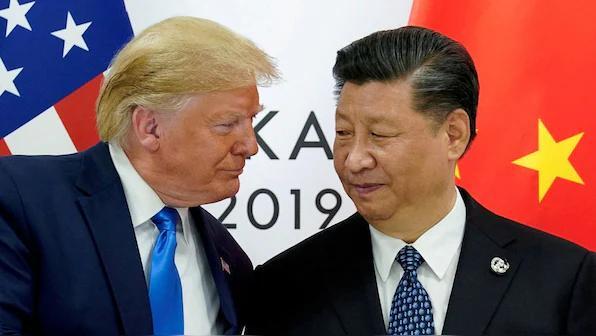
China Refuses to Join Denuclearisation Talks with US & Russia
In a recent development that has sent shockwaves around the world, China has announced that it will not participate in trilateral denuclearisation talks with the United States and Russia. This decision comes after US President Donald Trump called for Beijing to join the negotiations, citing the growing threat of nuclear proliferation on the global stage.
According to a report by Moneycontrol, Chinese Foreign Ministry Spokesperson Guo Jiakun made the announcement on Wednesday, stating that the expectation of China’s participation in the talks was “neither reasonable nor realistic.” Guo’s remarks were a clear indication that China will not budge on its stance, despite the mounting pressure from the international community.
The decision to exclude China from the talks has been met with widespread criticism from experts and diplomats alike. Many have argued that China’s refusal to participate will only serve to further destabilize the global nuclear landscape, particularly in the Asia-Pacific region.
The issue at hand is the growing threat of nuclear proliferation, which has been exacerbated by the ongoing tensions between the United States and North Korea. In recent years, North Korea has conducted a series of nuclear tests, prompting the United States to impose crippling sanctions on the isolated nation.
In an effort to address this growing threat, President Trump has called for a trilateral summit with Russia and China to discuss the issue of nuclear disarmament. However, China’s refusal to participate has put a significant dent in these plans.
Guo’s remarks were a clear indication that China will not budge on its stance, despite the mounting pressure from the international community. When asked about China’s decision not to participate in the talks, Guo stated that the expectation was “neither reasonable nor realistic” as “China and US are not at the same level at all in terms of nuclear capabilities.”
This statement was seen as a clear indication that China is unwilling to compromise on its nuclear capabilities, which has raised concerns among experts about the potential for a nuclear arms race in the region.
China’s decision not to participate in the talks has been met with widespread criticism from experts and diplomats alike. Many have argued that China’s refusal to participate will only serve to further destabilize the global nuclear landscape, particularly in the Asia-Pacific region.
In a statement, former US Ambassador to China, Max Baucus, expressed concerns about the implications of China’s decision. “China’s refusal to participate in trilateral talks on denuclearization is a missed opportunity to address the growing threat of nuclear proliferation,” Baucus said. “This decision will only serve to further destabilize the region and put global security at risk.”
Similarly, former Australian Prime Minister, Kevin Rudd, also expressed concerns about the implications of China’s decision. “China’s refusal to participate in trilateral talks on denuclearization is a significant setback for global efforts to address the growing threat of nuclear proliferation,” Rudd said. “This decision will only serve to further destabilize the region and put global security at risk.”
In conclusion, China’s refusal to participate in trilateral denuclearisation talks with the United States and Russia is a significant development that has sent shockwaves around the world. While the decision has been met with widespread criticism from experts and diplomats alike, it is clear that China is unwilling to compromise on its nuclear capabilities.
As the world continues to grapple with the growing threat of nuclear proliferation, it is essential that nations come together to address this pressing issue. However, China’s refusal to participate in the talks has put a significant dent in these efforts.
In the end, it remains to be seen how this situation will play out. Will China continue to refuse to participate in the talks, or will the international community come together to find a solution to this pressing issue? Only time will tell.
Source:



